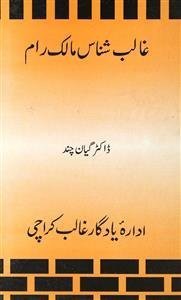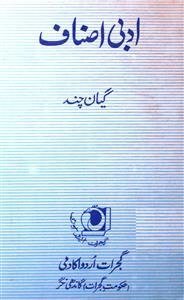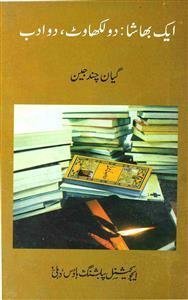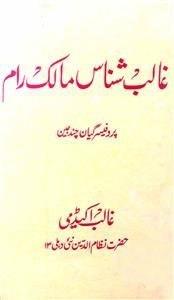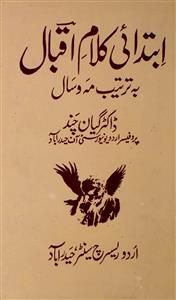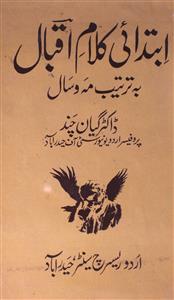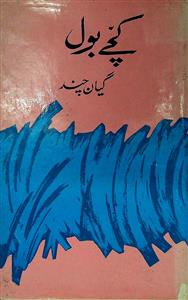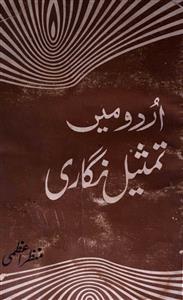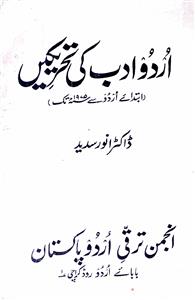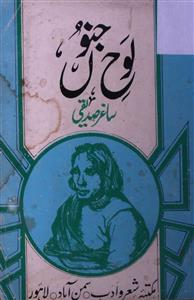 For any query/comment related to this ebook, please contact us at haidar.ali@rekhta.org
For any query/comment related to this ebook, please contact us at haidar.ali@rekhta.org
About The Author
One of the greatest and most influential Urdu-critics, and an expert of Ghalib studies, Gyan Chand Jain was born in his hometown Sewahara, Bijnor District, UP. Listing is lineage, Gyan Chand writes, “Gyan Chand bin Bahal Singh bin Bihari Lal bin Padma Jain bin Mohan Lal bin Mangni Ram bin Sita Ram". According to Gyan Chand, his great-grandfather “Hakim” Padma Singh was a Persian scholar and also recited poetry, and whose handwritten Persian manuscripts are preserved in his house.
His mother's name was Parvati. She was not a Jain but belonged to the Sanatan family. Gyan Chand was the youngest of the siblings, he was born on September 19, 1923. He passed the eighth standard examination from Muslim Qadrat School, Sewahara, High school from Muradabad in 1939, Inter Government College, Muradabad in 1941, entered Allahabad University and passed BA in 1943. After MA, Urdu Dastans remained the subject of his research and he obtained his D.Phil degree on the same subject. He also did MA in Sociology from Agra University. He joined Agra University in 1956 and graduated in 1960. He also studied Linguistics from Sagar University and joined Karnataka University in 1962 to get a Certificate of Advanced Linguistics.
Gyan Chand Jain was married in 1953 in Saharanpur. His wife's name is Armala. Gyan Chand Jain became a lecturer in Urdu at Hamidia College, Bhopal in 1950 and also became a professor at the same college. He then became the principal of Government Degree College, Mysore. In 1965, he became a professor of Urdu at Jammu and Kashmir University. He worked there for eleven years. After that in 1976 he became Professor and President of Urdu Department in Allahabad University. In December 1970, he became Professor of Urdu at Central University, Hyderabad.
Gyan Chand Jain has been a renowned Urdu writer and researcher, very active and dynamic. His works on Dastan and Masnavi are of great importance. His passion for linguistics does not need to be introduced. He has also been interested in the history of Urdu literature and he has written the history of Deccan literature in several volumes with Syeda Jaffer for the Furogh-e-Urdu, Delhi.
“Urdu Ki Nasri Dastanen” was first published in 1954 by Anjuman-e-Tarqi Urdu Pakistan. But, after a few amends, it was published again in 1969 from Pakistan itself. "Tafsir-e-Ghalib" is one of his important books. In fact, it gives commentaries on Ghalib's handwritten and largely unpublished poems. The book was published in 1972. But the date of publication on the book is 1971. This information was provided by the author himself. Another important book on Ghalib, "Rumuz-e-Ghalib", has articles by Jain and gives deep insights about the couplets. The book was published in 1976 by Maktab Jamia. A collection of research and criticism was published in 1978 under the title "Haqaiq". Another book “Zikr-o-Fikr”, and a voluminous book on linguistics titled “Aam Lisaniyat” has also been published. He has written a detailed book on Qazi Abdul Wadud entitled "Qazi Abdul Wadud Ba-Haisiyat Murattab Matn”. This book has been published by Educational Publishing House, Delhi.
Gyan Chand Jain is a tireless writer who strives to present literary facts without prejudice. Owning to his hard work and dedication, many intricate and complex problems of Urdu have been solved. Gyan Chand Jain's articles also provide insights into science and research. He is one of Urdu’s literary masters under whose guidance research and criticism is constantly advancing. His works on linguistics has become an impetus to several other works.
 For any query/comment related to this ebook, please contact us at haidar.ali@rekhta.org
For any query/comment related to this ebook, please contact us at haidar.ali@rekhta.org
